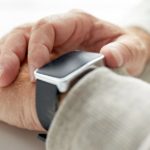 Retaining a degree of independence is seen as crucial to ensure that rising life expectancy provides society with a longevity premium rather than a curse of poor health and destitution. The past few years have seen a number of projects emerging to utilize new technologies to help provide that independence, and a recent study from the University of Colorado College of Nursing highlights how sensor technology can be an incredibly effective support for older women.
Retaining a degree of independence is seen as crucial to ensure that rising life expectancy provides society with a longevity premium rather than a curse of poor health and destitution. The past few years have seen a number of projects emerging to utilize new technologies to help provide that independence, and a recent study from the University of Colorado College of Nursing highlights how sensor technology can be an incredibly effective support for older women.
The study, which was published in Informatics for Health and Social Care, tracked a number of 65 year old women to determine their perception of various wearable and smart home technologies, including Fitbit fitness trackers and an array of home sensors for monitoring the home environment.
“Our findings that younger, more active older adult women prefer wearable sensors for themselves and smart home sensors for their parents is important to tailoring technology research for independent aging,” the researchers explain.
They believe that their findings are a crucial insight into how older people view technology, and that this insight can help to inform interventions to ensure the right tools are given to the right people, at the right time.
“Given the greater number of women who will live into old age and their specific age-related risks, such as high-risk for fracture due to low bone mass, there is a need to identify approaches that help women to age independently. Sensor-based technologies show promise, but their acceptability with older adult women must be understood to promote adoption into daily life,” the researchers continue.
Wearable sensors were largely seen as being more useful because of the high activity levels of the women in the study, so this relative bias is something to consider before drawing too firm a conclusion from the work. What is perhaps interesting is that none of the participants expressed any concerns around the data collected by the sensors, or the privacy of that data.
It’s perhaps fair to say that more work is required, but as a contribution to the debate around ensuring society ages healthily, it’s an interesting one.